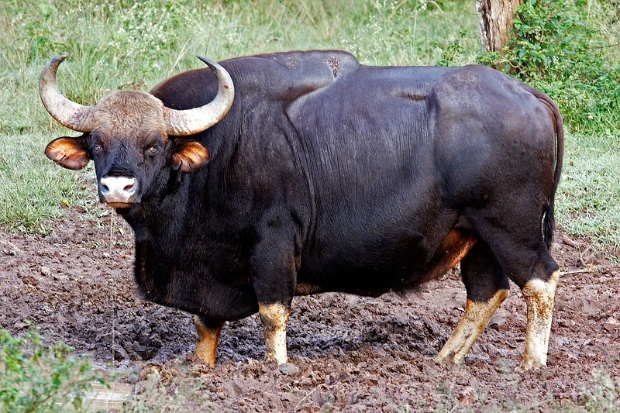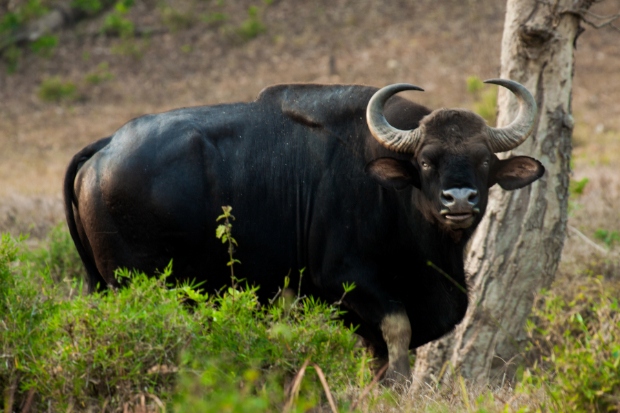(Representational image courtesy Flickr)
In the heart of India’s lush forests roams a colossal yet often overlooked guardian — the gaur, or Indian bison. Towering over other herbivores, these gentle giants are more than just a sight to behold; they are indispensable architects of their habitats.
In India, you can find gaurs in the Western Ghats, the forests of Chhattisgarh and Telangana, and the hilly regions of South India.
Gaurs, scientifically known as Bos gaurus, are the world’s largest bovines, with males standing up to 1.8 meters at the shoulder. Listed as vulnerable under the IUCN Red List, their impressive size and grazing habits make them influential in shaping the forest landscape.

By feeding on a variety of vegetation, gaurs help maintain plant diversity and prevent any single species from dominating, thus promoting a balanced ecosystem.
Moreover, as mega-herbivores, gaurs play a crucial role in nutrient cycling. Their digestion and subsequent waste return essential nutrients to the soil, fostering plant growth and sustaining the forest’s productivity. This process supports a myriad of other species, from insects to large predators, creating a thriving web of life.
Seed dispersal is another vital contribution of the gaur. Consuming a wide range of fruits and plants, they transport seeds across vast distances, facilitating forest regeneration and genetic diversity among plant populations. This natural reforestation effort ensures the resilience and continuity of these green expanses.

However, the gaur’s habitat is under threat from deforestation and human encroachment. As their numbers dwindle, the ecological balance they help maintain faces disruption. Conservation efforts are paramount, not only for the survival of this magnificent species but also for the health of India’s forests.
In essence, the gaur is more than just a forest dweller; it is a keystone species whose presence resonates through the ecosystem. Protecting the gaur means safeguarding the intricate tapestry of life that constitutes India’s natural heritage.
Edited by Arunava Banerjee
No comments:
Post a Comment